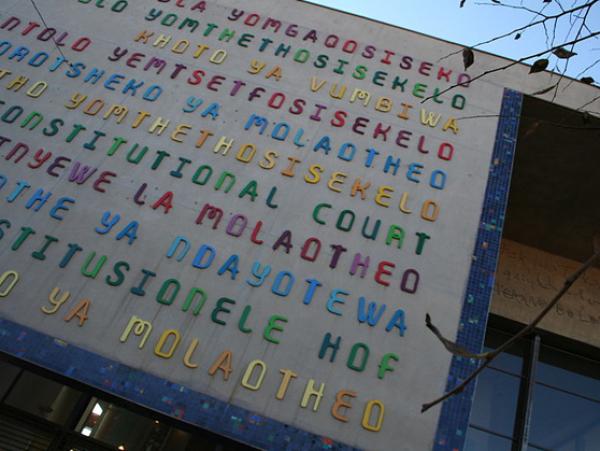Judges Matter: transforming the judiciary

Twenty-two civil society organisations have launched a coalition to lobby for transformation in the judiciary.
The Judges Matter coalition was born of a meeting convened in June by the University of Cape Town’s Democratic Governance and Rights Unit (DGRU) to discuss gender reform in the judiciary.
The coalition, which includes Rape Crisis, the AIDS Legal Network, and the Centre for Applied Legal Studies, seeks to show how important the selection of judges is for women’s rights, housing, and the environment, and to reform the process of selection.
“Judges affect every area of our lives,” says Tabeth Masengu, a researcher with the DGRU, “whether it be family issues, trash taken out in the neighbourhood, people going on strike, contraception as part of healthcare.”
“Everything is dealt with by the courts, but often people don’t realise how important they are. The Judges Matter Coalition was born on the premise of that—getting civil society and society at large to understand why and how judges matter.”
The first meeting focused on the effects of a lack of gender transformation in the judiciary—not only in the inadequate representation of women on the bench, but also in judges’ attitudes about gender—in a society rife with violence against women.
Sanja Bornman of the Women’s Legal Centre presented a case study of rape sentencing, stressing how departures from the sentencing framework impede justice for victims of sexual violence.
One startling example was the case of S v Sehlake, in which a man was accused of raping a four-year-old. The minimum sentence for rape of a child under 16 is life in prison. But he was given a reduced sentence of 12 years. The judge cited factors like the rapist’s difficult childhood, the fact that his father had abandoned the family and that the rape did not cause the four-year-old any “serious bodily harm”. Yet the Criminal Law Amendment Act 105 of 1997, states that a lack of physical injury to the complainant cannot be invoked as a “substantial and compelling” circumstance to justify a reduced sentence.
In the example of S v Mahomotsa, a man raped two 15-year-old girls, physically assaulting one and using a knife to force the other. One of the girls suffered bruising to her genitalia, but “no subsequently visible injuries were inflicted on them.” Judge Mpati stated that these rapes “cannot be classified as falling within the worst category of rape,” reducing the sentences because life imprisonment would be “too severe to be just.”
Sentencing “is just unbelievably inconsistent,” Bornman says.
“The minimum sentence is there for a reason. It’s there to create legal certainty and it’s meant to send a message to people who perpetrate violence against women that they’re going to go to jail for a long time. It’s disturbing to see the kind of things that have been taken into account,” she says.
Bornman relates these judgments back to the Judicial Service Commission’s selection of judges, a process that she describes as very opaque.
This has been an issue for years, according to Alison Tilley of the Open Democracy Advice Centre, who says “a number of appointments have been very controversial.”
Ultimately, the coalition hopes that specific changes to the judicial selection process will enhance the judiciary’s credibility by increasing diversity and participation. Members note that diversity in terms of race has improved in the past few years, but diversity in gender lags behind.
“We have to fix the demographics. If you’re trying to change the institutional culture of a place like the judiciary from a patriarchal culture to a less patriarchal culture, you’re never going to do that if you don’t have enough female bodies,” Bornman says. “It’s crucial for the legitimacy of the bench that there be gender parity.”
Masengu adds that the courts hold a particular symbolism for society. It is problematic that the bench does not reflect the country’s demographics after 20 years of democracy, she says. “How can we perceive the courts to be legitimate and fair if they’re predominantly male?”
She questions what message this sends to young women aspiring to the judiciary. “The perception is created that this might not be an inviting environment for women, and having a judiciary with that type of perception, even if it’s just a perception, could be damaging,” she says.
But transformation is not only a matter of race and gender, but also of attitude, says Bornman. “Regardless of who it is, if they’re not capable of giving good judgments—ones that take human rights and women’s rights further—then that’s a problem,” she says.
The next Judges Matter meeting is scheduled for August. Organisations will convene in Johannesburg to discuss housing, featuring a case study presented by the Socio-Economic Rights Institute.
This is the first article of a two-part series. The second article, published on 16 July, is here.
Support independent journalism
Donate using Payfast

Don't miss out on the latest news
We respect your privacy, and promise we won't spam you.

This article is licensed under a Creative Commons Attribution-NoDerivatives 4.0 International License.
